Pathways to a just energy transition

Oxfam in Bangladesh in collaboration with The Daily Star organised a roundtable discussion titled "Pathways to a Just Energy Transition : Balancing Sustainability, Equity and Industry Growth in the RMG sector" on January 13, 2025. Here, we publish a summary of the discussion.
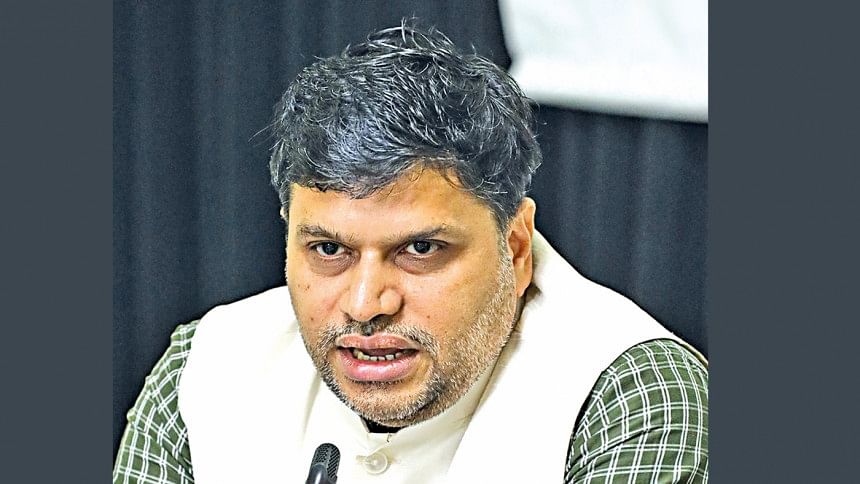
Ashish Damle, Country Director, Oxfam in Bangladesh
The emphasis on justice within the energy transition has always been central to Oxfam's discourse. Through our work with various communities, including workers and affected populations, we have observed that transitions driven by market forces can have adverse impacts if not addressed through appropriate policies.
Oxfam's primary focus has always been to assess the impacts of these transitions. We have identified three or four key areas of concern and have actively voiced them, particularly given Bangladesh's position as one of the largest garment-producing nations and a major supplier to European countries. Our advocacy extends beyond Bangladesh to Europe, the UK, and the US.
Firstly, we have consistently raised the issue of whether just energy technologies are being made patent-free. For garment industries, acquiring these technologies is often a necessity. However, since they are not patent-free, they cannot be manufactured locally. This creates a challenging situation where countries like Bangladesh are forced to import these technologies.
Secondly, we recognise the need to align just energy transitions with broader global commitments. Last year, COP29 essentially failed to meet its targets. By 2024, the Paris Agreement's threshold was surpassed, with global temperatures rising by 1.6 degrees Celsius instead of the agreed 1.5 degrees. These developments disproportionately affect countries like Bangladesh. Amplifying these voices on a global scale is critical, especially given the geopolitical shifts and the resurgence of fossil fuel-focused political campaigns. If business interests are not adequately addressed during the adoption of just energy transition technologies, it would be a grave oversight. It is very important to have solid engagement with the private sector.
Thirdly, there is a significant deficit in policy dialogues, resulting in a lack of a robust policy framework. This creates systemic weaknesses in negotiations. For Bangladesh to progress, strong and unified commitments are crucial. While efforts have been made in the past, they often remain isolated. It is the right time for Bangladesh to take a leadership role by collaborating with the top 20 climate-impacted countries. Sustained leadership in this area could strengthen the country's position on the global stage, as Bangladesh is one of the most affected by these transitions.
Lastly, when addressing the just energy transition and technologies in Bangladesh, it is imperative to rely on solid, substantiated data and research. Although data exists, it often lacks consolidation. A centralised, authoritative repository of data is essential for substantiating arguments and strengthening Bangladesh's position in global negotiations.
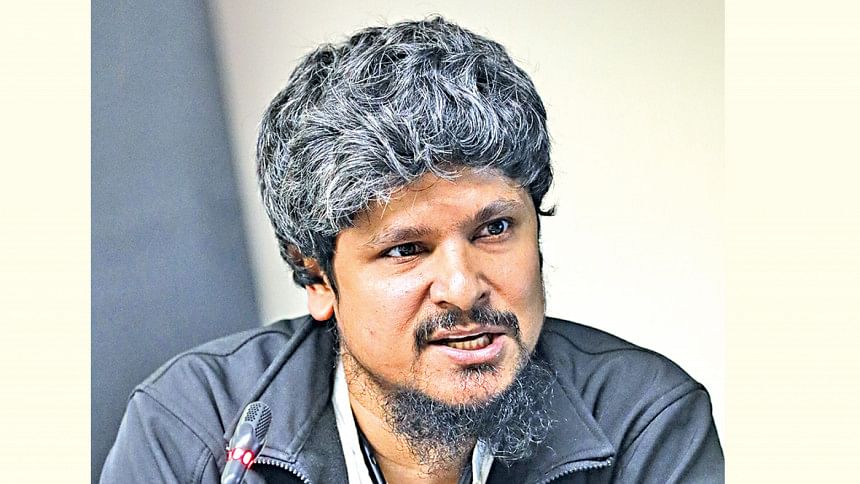
Dr Mohammad Emran Hasan, Head of Climate Justice & Natural Resources Rights, Oxfam in Bangladesh & Keynote Speaker
Energy transition is regarded one of the most plausible solutions to protect humanity from the most severe consequences of climate change. When it comes to the fair share of carbon, the Global North has already surpassed its limit. However, it turns to an unjust, colonial approach as they keep using fossil fuels while prescribing transitions for developing countries.
Despite Bangladesh's minimal carbon footprint, energy transition is essential to meet global demands. The Earth receives about 1.52 million TWh of energy annually from solar, 8,700 times more than global energy demands. The industrial sector in Bangladesh consumes approximately 3,740 KTOE annually, and adopting energy-efficient machinery could save around 1,159 KTOE per year. Renewable energy currently contributes less than 3%, despite Bangladesh's pledge in 2016 to meet 100% of fuel demand from renewable sources by 2050.
For a just energy transition, four considerations are critical: recognition justice for those harmed, procedural justice to involve affected parties, distributional justice to allocate responsibilities and benefits equitably, and remedial justice to compensate victims when necessary. Developed countries and brands must support this transition through climate finance and shared responsibility.
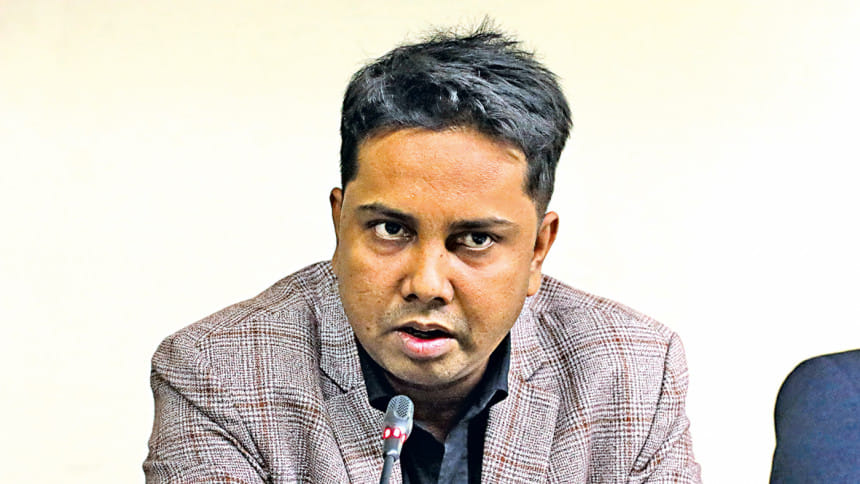
Md Sariful Islam, Head of Influencing, Communications, Advocacy and Media (ICAM), Oxfam in Bangladesh
Given the existence of a Just Energy Transition platform in Bangladesh, my key question is: what are the primary challenges in implementing a just energy transition within the RMG sector? How can we address the vulnerabilities of climate-affected individuals who migrate to Dhaka, join the RMG industry, and face compounded challenges? What measures can ensure their protection and resilience during this transition?We are striving to achieve sustainable goals where just and equitable results are reached at the finish line. Inclusive growth is the way forward.
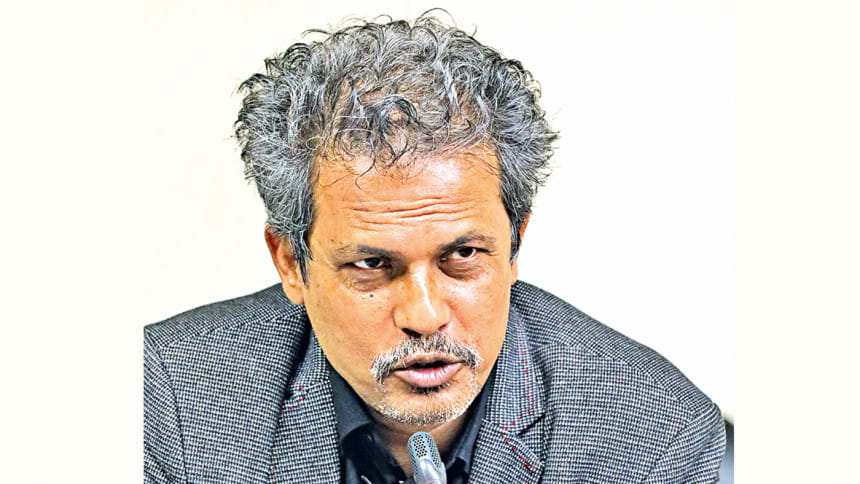
Azad Abul Kalam, Manager – Just Energy Transition, ActionAid
Since 2010, Bangladesh's energy sector has grown rapidly through rental and quick rental initiatives, with the government showcasing it as a key success. However, the 2021 Ukraine war exposed its fragility. Price spikes in oil and LNG disrupted supply chains, causing power plant shutdowns, despite years of investment. This underscores the need for energy sovereignty rather than mere security, as reliance on imports leaves Bangladesh vulnerable to external shocks.
COVID-19 and power shortages further strained industries, particularly the RMG sector, which depends on captive power. However, LNG and gas shortages, along with recent price hikes, have limited its effectiveness. Experts agree that captive power alone cannot sustain the sector. Bangladesh must focus on energy sovereignty by maximising domestic resources, such as gas, and investing in renewables like solar and wind. Policies should be tailored to the country's unique context, prioritising local expertise to ensure a sustainable energy future.
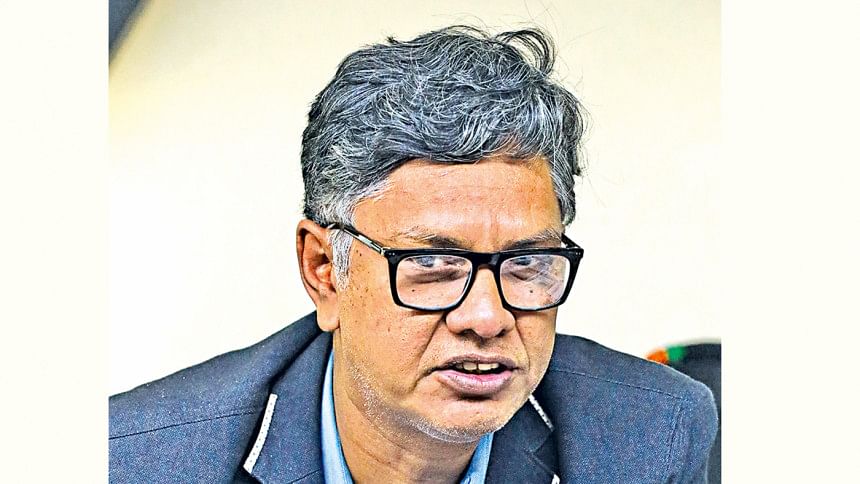
Wasiur Rahman Tonmoy, Sr. Coordinator, Capacity Development, Manusher Jonno Foundation
A just energy transition to renewables involves both technical and social aspects. Our focus is on the social dimension, advocating for energy access as a human right, particularly for marginalised groups such as women, labourers, ethnic minorities, and coastal populations vulnerable to climate change. A study of 23 policies revealed a glaring omission: none explicitly included women in terms of access to energy or renewable benefits, as seen in policies like the National Energy Policy 2004 and Renewable Energy Policy 2008.
These policies also overlook the risks of job displacement due to automation, particularly for marginalised women, and fail to address the equitable distribution of benefits or skill gaps. The lack of coordination among policies hinders progress, as technical experts often neglect social challenges, and human rights advocates struggle with technical aspects. Bridging this gap requires inclusive policies that integrate both technical and social considerations to ensure an equitable transition. Gender-responsive budgeting and reducing bureaucratic barriers are essential.
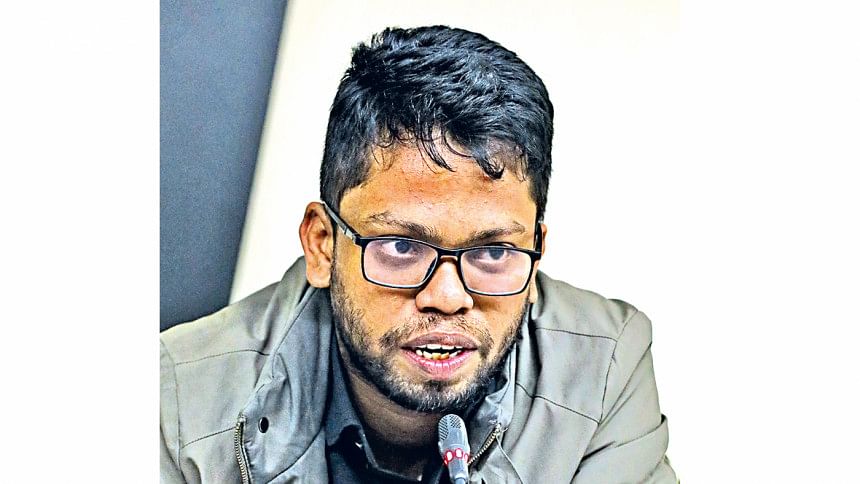
Sohanur Rahman, Executive Coordinator, YouthNet Global
Dr. Yunus's 'Three Zeros' framework incorporates a just energy transition, but there is minimal coordination between ministries, hindering green energy initiatives, skill development, and leadership. Although COP adopted a Just Transition Framework in Dubai, no concrete actions have followed.
In terms of technology transfer, proper assessments are needed to ensure effectiveness. A just energy transition also requires just financing. When framing Nationally Determined Contributions (NDCs), it is crucial to ensure the active participation of trade unions, a stance supported by Oxfam to foster meaningful community engagement.
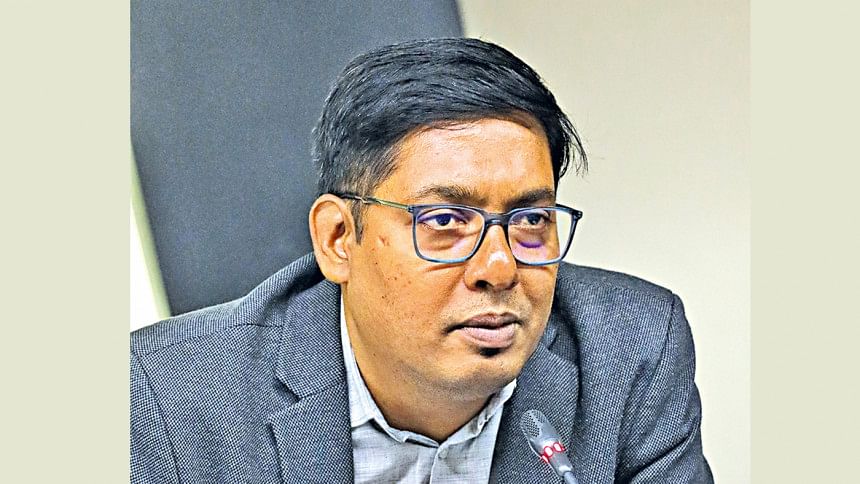
Md Mahfuzur Rahman Mishu, Foreign Affairs Editor, Jamuna Television
We often discuss renewable energy, yet lack a comprehensive plan, with minimal input from entrepreneurs and experts. Projects like Paira and Ruppur have overlooked critical factors. For a sustainable RMG sector, prioritising eco-friendly energy solutions aligned with brand indicators is essential to prevent the loss of vital remittance flows.

Faiza Tuba, Programme Manager, Laudes Foundation
When discussing patents, it's worth noting that Bangladesh remains the second-largest apparel manufacturing industry—a remarkable achievement rooted in homegrown efforts. However, when it comes to a just energy transition, Bangladesh must adopt a place-based approach, tailored to the specific needs and contexts of each region with people at its core.
In terms of Nationally Determined Contributions (NDCs), the private sector is largely excluded in the discussion. If they are not engaged effectively, reducing emissions will be extremely difficult and we cannot hold them accountable if they did not sign up in the first place. This highlights the urgency for comprehensive needs assessments as a central priority in our planning efforts.
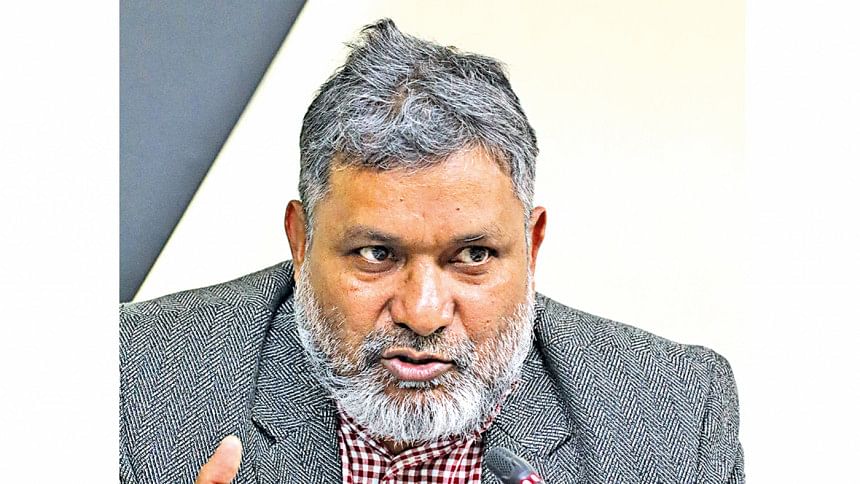
Shahriar Ahmed Chowdhury, Head of Centre for Energy Research, United International University (UIU)
Despite previous heavy investments in fossil fuels, often linked to tax evasion, a similar level of investment could shift towards renewable energy. However, the reality is that solar energy is heavily taxed in Bangladesh, with 11% on solar panels, 38% on inverters, and 58% on batteries and structures.
For the RMG sector, lifting the upper limit on net metering would help accelerate renewable energy integration. Many RMG factories, being multi-storey, lack space for rooftop solar installations. Allowing factories to set up solar systems in any location with a wheeling charge would make solar energy more accessible and cost-effective, with rooftop solar costing around 4-5 Taka per unit versus 10 Taka or more from the grid.
EPZs operate as utility clients, but companies within these zones cannot buy electricity directly from solar providers. Utility organisations act as intermediaries, adding their margin. Net metering does not function effectively within EPZs due to resistance from utilities. A solution could be ensuring these organisations earn comparable profits from rooftop solar systems as they do from traditional utility services.
Finally, there is no comprehensive nationwide grid study, and renewable energy targets have been set unrealistically. The Renewable Energy Policy set a target of 5% by 2015 and 10% by 2020, yet in 2024, we have barely reached 3%. Feasibility studies are needed to set more realistic targets.
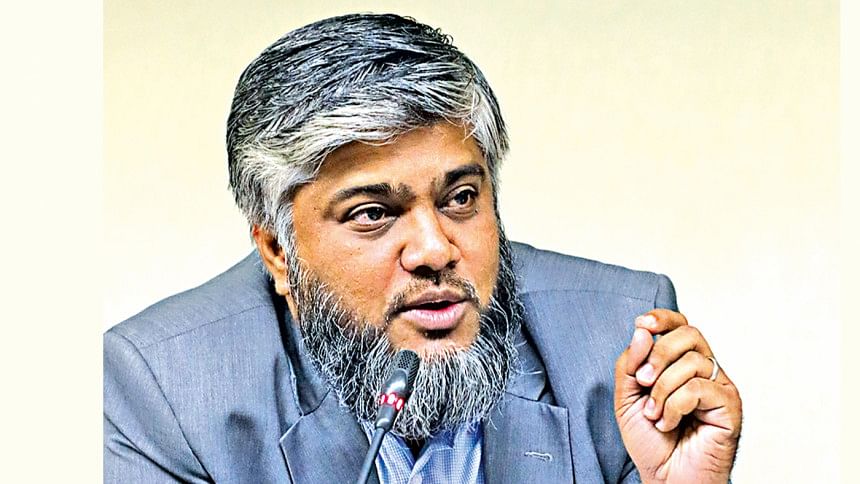
Mohammad Mahmodul Hasan, Domain Coordinator- Water, Food and Climate, Helvetas Bangladesh
To progress, we must assess current needs and evaluate how closely we follow expert-mapped renewable energy projects. The book Prospects of Renewable Energy Transition in Bangladesh's RMG Industry by Oxfam and CPD offers valuable insights. However, a key challenge remains: lack of trust among academicians, practitioners, and policymakers.
We must increase renewable solar energy use in the RMG sector through solar rooftops and grid integration. Bangladesh's access to global support mechanisms like the CTCN provides an opportunity for responsible technology transfer, with BGMEA and BKMEA potentially establishing funds for these efforts. Providing solar stoves to female garment workers could effectively promote renewable energy adoption.
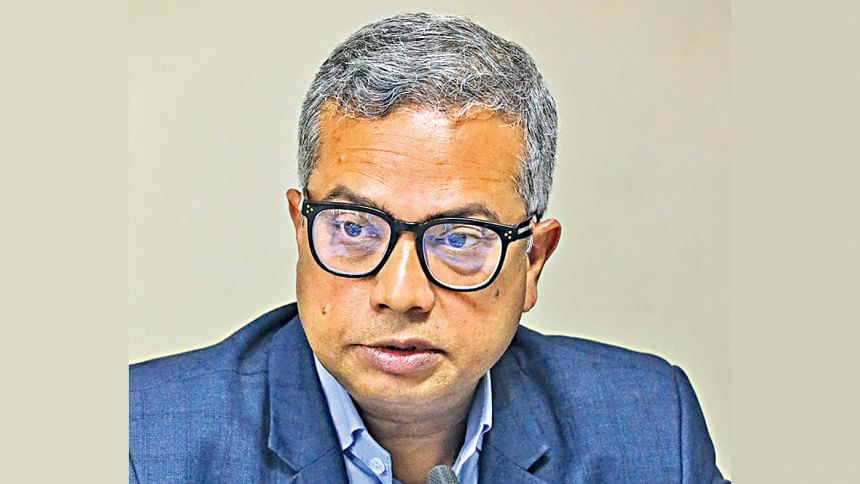
Abdullah Hil Rakib, Managing Director, Team Group
The high cost of LNG, which requires foreign currency and is limited by our reserves, highlights the need for internal energy audits. These audits, focusing on production, captive electricity use, and industrial distribution, could significantly improve efficiency. While the government offers green funds and public-private partnership policies, proper incentives are needed to drive green transformation.
Many small factories lack the eligibility or motivation to implement necessary changes. Comprehensive energy audits across the RMG and non-RMG sectors would help identify the 28% energy waste, costing billions annually. By focusing on reducing energy costs, exploring local gas sources, and adopting strategies like "reduce, recover, report, and renew," we can save both energy and foreign exchange. Improving energy efficiency in factories would reduce production costs and align with government policies.
While Bangladesh has 233 globally recognised green factories, which consume 20–30% less power than conventional factories, widespread adoption requires greater policy support. Post-Rana Plaza, investments in resilience have reduced power consumption, yet renewable energy remains untapped.
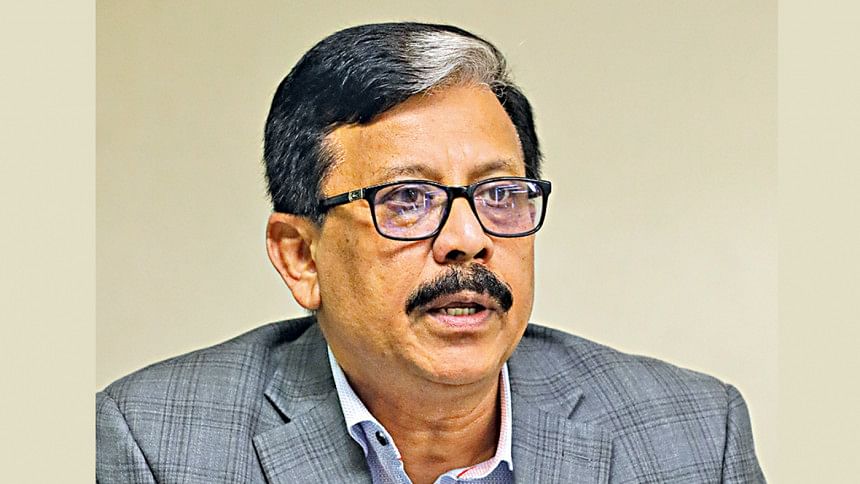
Dr. Munjurul Hannan Khan, Executive Director and Founder, Nature Conservation Management (NACOM)
The government's investments in renewable energy are reasonable, given its global ambitions, but Dhaka has yet to establish the required infrastructure. Infrastructure Development Company Limited (IDCOL) trained around 30,000 people in renewable energy, yet their contributions have fallen short. In the garments industry, equitable access must ensure fair opportunities across the value chain, addressing inequalities. Widespread awareness and education are crucial, with all stakeholders—including the government, businesses, and workers—sharing responsibilities. Ministerial-level coordination, backed by political will, is vital for success.
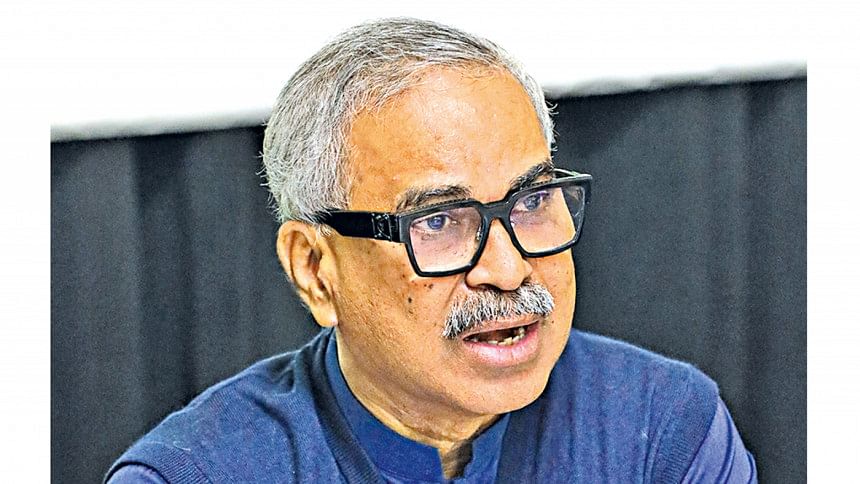
Faruque Hassan, Former President, BGMEA
We are advocating for rooftop solar energy, particularly in areas with major projects. However, investment is lacking, despite this being a well-supported area in the past. The adoption of solar energy requires the integration of various components, which demands financial support. Bureaucratic obstacles, taxes, and corruption hinder progress. The government should subsidise the clean energy sector rather than relying on taxes. Bangladesh Bank and IFC currently offer green finance services.
Small and medium factories with outdated machinery struggle to industrialise further, facing financial challenges. Around 230 factories in Bangladesh have received internationally recognised certification. We aim to involve more brands and buyers, with H&M and Bestseller supporting a 500 MW wind power project expected soon.
International buyers must also take responsibility as sustainable practices evolve. Technical, policy, and financial support are essential to expanding green factories. The apparel and garment industry depends on two core raw materials: cotton and petrochemicals. Both sectors face challenges, and hybrid production processes may offer solutions.
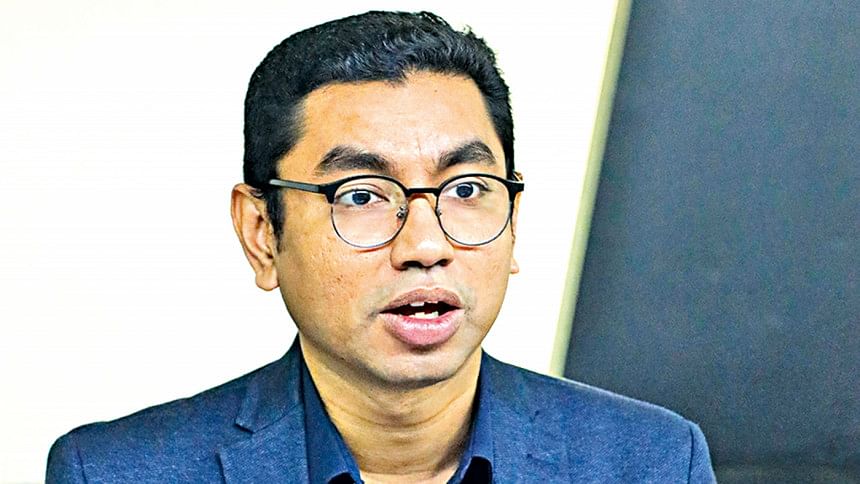
Tanjim Ferdous, In-Charge, NGOs & Foreign Missions, Business Development Team, The Daily Star & Moderator
The RMG sector is recognised as the backbone of Bangladesh's economy. This significant sector has been facing challenges, particularly due to global energy scarcity and the war in Ukraine, which have created an unstable situation. Additionally, the rising cost of electricity and the growing need for a sustainable and uninterrupted energy system are becoming increasingly pressing concerns.
Recommendations
- Advocate for patent-free just energy technologies to enable local manufacturing in countries like Bangladesh, particularly for the garment industry.
- Align just energy transitions with global commitments, ensuring private sector engagement and addressing the geopolitical shifts that undermine progress.
- Strengthen policy dialogues and create a robust framework, enabling unified commitments for Bangladesh to take a leadership role in global climate discussions.
- Establish a centralised, authoritative repository of data to support evidence-based decision-making and strengthen Bangladesh's position in global energy negotiations.
- Shift focus from energy security to energy sovereignty to reduce reliance on imports.
- Implement a comprehensive strategy for the generation, distribution, and transmission of renewable energy.
- Prioritise the adoption of energy-efficient technologies within all sectors including RMG.
- Subsidise the clean energy sector through government support rather than reliance on taxation.
- Support small and medium RMG factories with funding and modern machinery to progress industrialisation.
- Hold international buyers accountable as sustainable guidelines evolve, ensuring technical support.

 For all latest news, follow The Daily Star's Google News channel.
For all latest news, follow The Daily Star's Google News channel. 



Comments